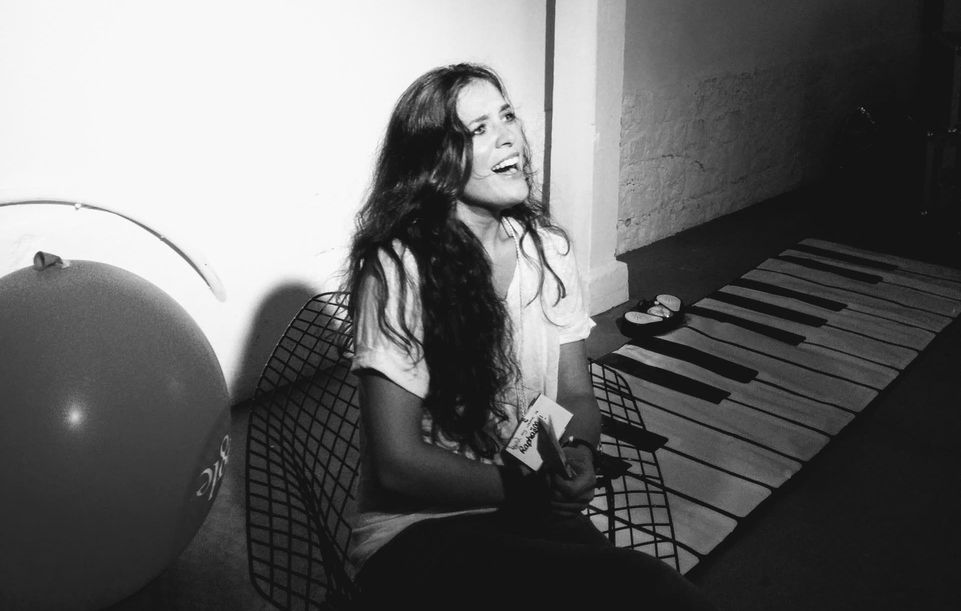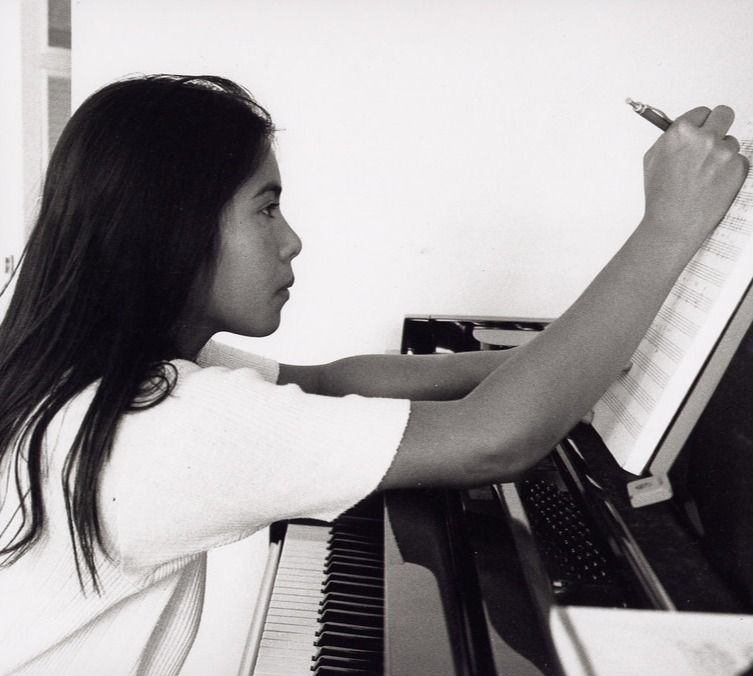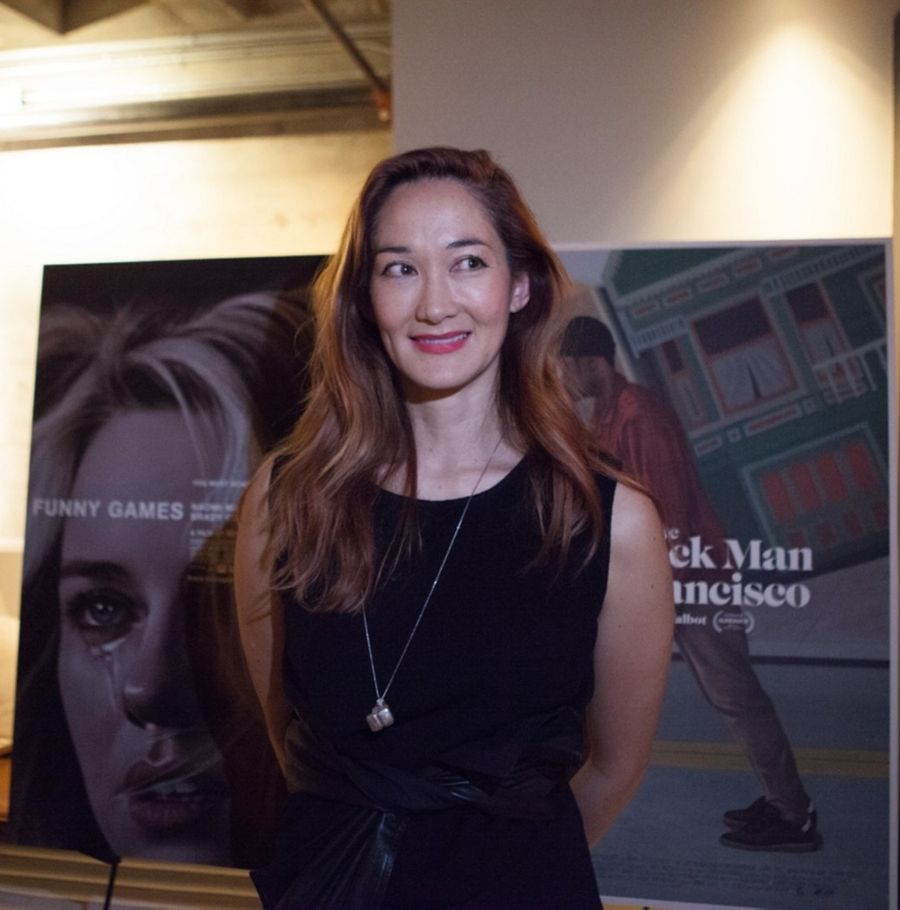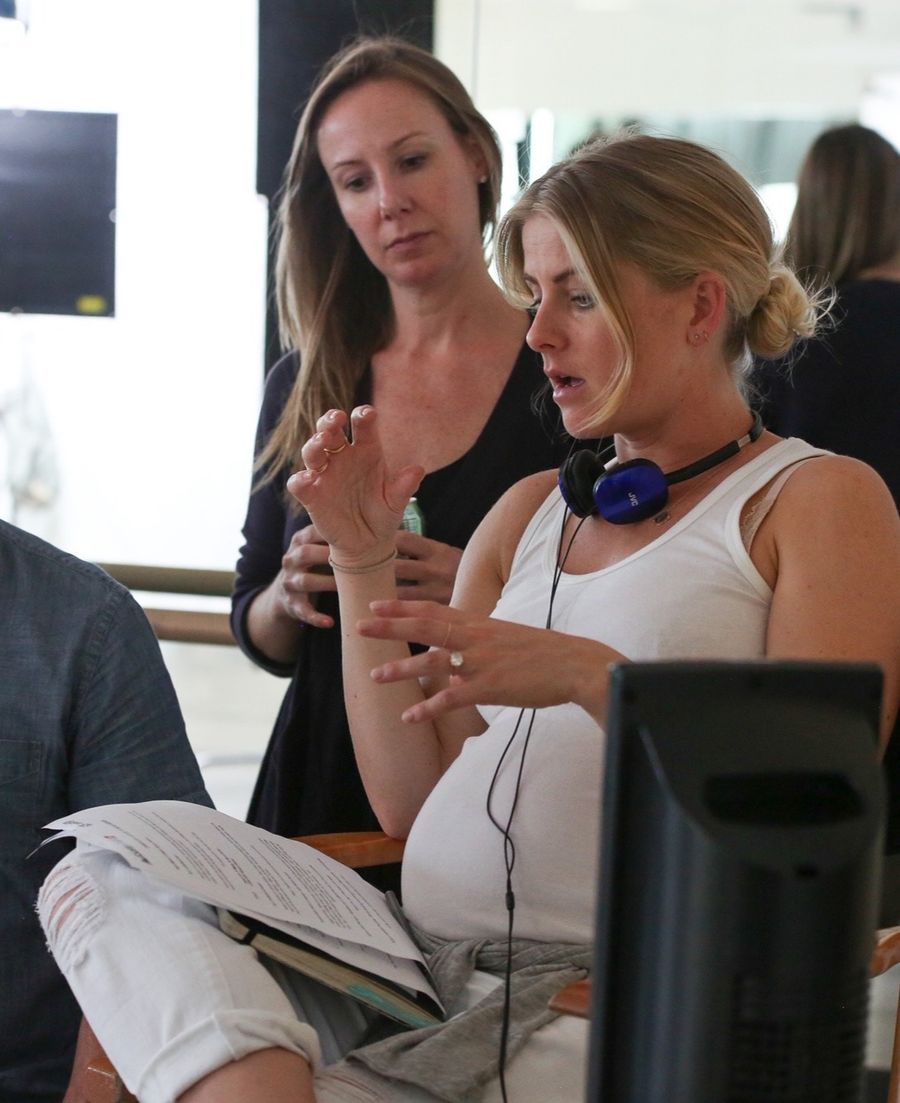Thibaut: “A fulfilled, happy, healthy mother makes a fulfilled inspired kid”.
Over the past couple of years, we have become familiar with the figures and perhaps no longer find them shocking. In 2020, the percentage of the top 250 blockbuster films being scored by women decreased from 6% to only 5% (see ‘The Celluloid Ceiling’ by Marthe Lauzen, 2020). In 2019, 3% of the most played songs on the radio were produced by women. Women make up only 14% of sound engineers and 14.2% of those signed to UK music publishers. There have been panels, pledges and pointed discussions, highlighting the current underrepresentation of women in the industry.
We have reviewed, now we must respond.
To begin, we must get to the root, first addressing the engrained attitudes that underly society of unrealised prejudice and gatekeeping. A silver lining, there has been progress on this front. A recent increase in discussion has raised awareness, prompting many companies to sign 50/50 pledges to hire 50/50 male and female composers. New collectives have arisen (e.g. 2% Rising, The Alliance for Women Film Composers) and specialised funds have been allocated towards minority groups (e.g. PRS). Engrained societal barriers include those such as attitudes in the studio, representation (such as in literature, education, performance, the media), business ideals, gatekeeping, identity and confidence, age, marketing as a woman and parenting as a freelancer. Due to their complexity and longevity, these must be addressed separately to realise their deviation and overcome them as a whole.
Prompting the Conversation
The world of freelancing can be all encompassing and immersive, making it difficult for anyone to take time off, let alone time out. For a woman, already marginalised for her gender, the prospect of taking 6-11 months out (if not more) is daunting to say the least. Often, it is the elephant in the room that no one dares acknowledge lest their employer/potential employers should think they were not fully committed to their job or have too much on their plate.
On the 30th June, 2020, the AWFC ran the virtual workshop ‘Being a Composer and Parent’. Jenna Fentimen, the AWFC’s UK director and founder, stated:
“I want this discussion to lead to an openness where people feel they can use the AWFC as a forum to talk about parenting. I want the parents or to-be parents listening to feel supported, and the non-parent audience to feel like they want to support."
The workshop prompted the publication of this article which includes responses from Sound Engineer Olga Fitzroy, Executive Producer at The Elements Music Dann Liebermann, Composer Raphaelle Thibaut, and Jazz Pianist and Composer Nikki Yeoh, all mothers.
Taking Decisive Action
Olga Fitzroy, a sound engineer, and activist for Pregnant Then Screwed, campaigns to support mothers through the self-employed income support scheme. Self-employed women have previously not been entitled to shared parental leave, meaning that when Fitzroy herself had a child, she had to take all the maternity leave even though she would have preferred to go back to work and share the leave with her partner. Women who have taken maternity leave now receive less Covid income support than fathers or women who have not had children in the last three years. Pregnant then Screwed are taking legal action against the government to address this discrimination.
Fitzroy invites us to sign the petition through Pregnant Then Screwed, participate in the legal fund crowd-funder, share the petition and write to our local MP’s to raise the matter.
Being Open About Fear
The participants discussed their fears when starting a family. Thibaut hid her pregnancy from her clients to ensure they had no doubt of her capability to meet deadlines. She states, “When I was pregnant […] people were pretending that nothing was happening […] so we would never talk about it and then when I had Jude [her son] it turned into a taboo”. She went back to work only two weeks after having her son and felt that her co-workers pretended nothing had happened.
Thibaut holds herself partially responsible for not discussing it due to the genuine fear she felt that the industry would not take her as seriously as a composer. She felt pressure from her own biases stating, “When a woman becomes a mother, she’s defined by motherhood”. She felt guilty for wanting to pursue her career passion alongside having a child as if she could not do both.
Indeed, Yeoh almost confirms Thibaut’s fears from her recount of her experience when she was headhunted to write for a film. Despite the deadline being before her due date, she states “I didn’t get the gig because I was pregnant. In fact, they were quite direct about it. I was shocked as the pregnancy had no effect on my ability to compose."
Fitzroy also found that people made assumptions on her time. She would bring her son into the studio for lunch and have conversations asking how her maternity leave was going where she would say, “This child is three, I haven’t been on mat leave for a long time and I’ve done loads of sessions here since then." Her husband did not have conversations like this.
Lieberman took time out after having her first child and experienced a drastic loss in confidence as it seemed that everyone was motoring ahead of her. She noted her financial inequality next to her co-workers who had not taken time out to have children, explaining her new found impostor syndrome and having to carve her way back into the industry. She could not continue keeping up appearances and wrote a sensibly toned email to her co-workers, explaining her situation. She states, “I thought I needed to prove that I was ok and then I had to say, you know what, I’m a single parent trying to cope with accelerating my career after taking some time out and trying to impress you all at the same time and it’s a lot!"
Lieberman recommends being open about your situation and not letting your wellbeing be affected. After writing to her co-workers, the team was able to have more of an understanding of her experience and could thereafter support her better.
Seeking Help
Childcare can be expensive. Yeoh mentioned the importance of, what was, the “sure start scheme," a government scheme which offered many activities for new mums including creative lessons and fitness classes which she says “[were] great for my mental health and my son’s development." Unfortunately, this scheme has now been scrapped and Yeoh hopes something similar can be curated for new parents.
Lieberman never had any external help whilst having a child, which affected her career. At the time, she could not financially justify paying for help as it seemed she would just break even. However, Lieberman, Thibaut, and Fitzroy all agreed that paying for childcare, even if it meant breaking even, was worth the investment. Lieberman stated, "Your mental health, your wellbeing, your creativity, your career, and yourself are paramount."
"Your mental health, your wellbeing, your creativity, your career and yourself are paramount," -Dann Liebermann

Establishing Boundaries
All participants noted that having a child made them more organised, learning better time management. Fitzroy found it made her stricter with her rates and time. Thibaut worked faster, became more productive and creative. Having a timeframe made her more focused, simply because it had to be done! Fitzroy agreed stating, “There’s nothing like a deadline [such as nursery pickups] to focus your mind."
Yeoh taught with her son in the baby sling, stating, "You just get through it." Once she started gigging again she adjusted saying, “I either practised whilst he was taking an afternoon nap or whilst he was in bed at night.” Whilst it wasn’t easy, she assures us that once her son was at nursery and school, she had more time for herself.
Fitzroy states, “Having kids makes you not feel guilty about turning down borderline jobs”. Saying "no" can feel liberating if the job is not worth your while and they could even come back with a better project. Thibaut declined low-budget jobs and avoided stressful work situations in favour of spending time with her child. Lieberman declared that new jobs have to pay and make sense if they are taking time away from her children.
Having a shared calendar with the household helps to carve out the time needed to be creative, the key being communication and sharing the mental load of caregiving.
Yeoh reaffirms, "Being a musician is actually brilliant for parenting. You can do the school run and as far as your child goes, they see you as much as a stay at home parent. So it’s tiring but in a way you get the best of both worlds."
What They Wish They Had Known
Thibaut states:
“Use it, don’t hide it. Embrace it. It’s actually going to make you a better, stronger composer. The resilience, hard-working creativity flow that came out of my experience was the best school. I don’t think motherhood affects ambition of creativity unless you let it and to me it was the opposite."
She tells prospective parents to “lose the guilt." Some women may not want to work straight after having a baby and that should be completely acceptable alongside those who wish to go back to work.
Fitzroy wishes someone had reassured her that it is completely possible to re-enter the industry at where you were in your career. Lieberman insists on ridding women of the guilt of needing to progress quickly in their careers. If you want to go back to work, pay for the childcare to look after your own mental wellbeing. It is worth it.
Yeoh shared her experience of a difficult birth, resulting in challenges for her son and meaning she had to devote herself fully to him, including hospital appointments and daily exercises. She shares the following:
“I absolutely loved every moment and because he almost died at birth, I relished every developmental stage and gratitude was my daily practise. Many of my friends at the time (mum friends) took a lot of the process for granted and just focused on how little sleep they’d had!"



"Enjoy the process. They are not babies forever." — Nikki Yeoh
What Can We Do?
Fitzroy did not know of any women engineers who had taken time out from their careers to have a child. We need to see more working mothers, balancing a successful career alongside having a family. We need more role models like Fitzroy, Lieberman, Thibaut, and Yeoh.
Thibaut’s only social interaction she had as a new mother was within ‘mum groups.' She would have loved a support group of mothers in the industry, having another mother coaching her whilst she was pregnant.
In a bid for visible role models and support for prospective mothers in music, the AWFC is curating a Parenting Mentorship Programme. Prospective mothers will be able to sign up to receive 1-on-1 coaching from another mother within the industry.
If you are a mother working in the music industry and are interested in becoming a mentor, please contact AWFC ([email protected]) to find out more information.
Kezia Tomsett
Kezia Tomsett is a London-based film composer, producer, composer’s assistant and vocalist. Working in animation, commercials, documentary, drama and thriller, Kezia uses her love of song-writing and music without words to enhance the visual narrative. She works with both orchestral and electronic music, heightened by her use of her own voice in rich ethereal textures, drawing on her extensive training in classical music theory.
Kezia has been selected for BFI Network x BAFTA Crew 2021. Kezia began her career during her BA Music Hons. degree (Class 1, graduating July, 2019) at the University of Leeds and worked a year-in-industry with WMP Studios, composing for companies such as Covergirl, Maille Mustard and Betty’s. 2020 began with Kezia co-curating and performing at the 10th Brudenell Piano Sessions with pianist Simeon Walker and has since performed with composer Alexandra Hamilton-Ayres at Daylight Music, Union Chapel. Thereafter, Kezia has written and produced her next upcoming EP alongside scoring short films with Blue Zoo Animation Studios (‘In Shapes’, direc. Zoé Risser), Storm Features (‘Downtime’, direc. Michaela Storm Moir) and director Maya Armon (‘Admission’). She was also 1 of 10 composers featured on Sister X’s debut album ‘Isolation Textures’ and has had her music synced across shows such as Sky Sports, BBC News, BBC 2’s ‘Victoria Derbyshire’, BBC’s ‘The Film Review’ and ‘Click’.
Kezia is content editor and community manager for the UK’s Alliance for Women Film Composers and is an active researcher in the field of women in film, speaking at events such as the Hidden Figures Conference 2020 (Royal Holloway) and writing for The White Room Magazine.







